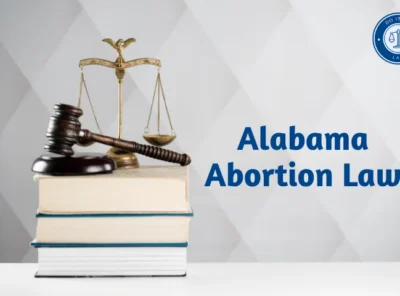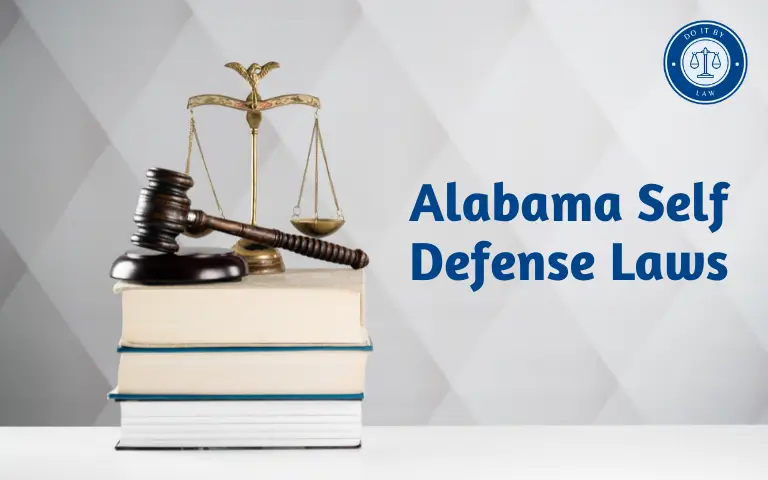Alabama Custody Laws for Unmarried Parents: What You Need to Know
Alabama has specific laws and procedures defining child custody rights for unmarried parents. This article provides an overview of Alabama custody laws for unmarried parents pertaining to children born to unmarried parents, including the key provisions, requirements, and recent changes.
In Alabama, when unmarried parents have a child together, the mother is granted sole legal and physical custody automatically by law unless the father takes legal action to establish his rights. Fathers must legally establish paternity and then pursue custody or visitation rights through the courts if desired.
When Alabama Custody Laws for Unmarried Parents Were Enacted and Why They Exist
Alabama first enacted laws dealing with child custody disputes in the late 1800s. The original statutes focused on assigning “care and custody” of minor children to the father by default unless a court determined otherwise was in the child’s best interests.
Over the 20th century, Alabama’s custody laws evolved to allow mothers greater custody rights and added specific provisions dealing with children born to unmarried parents. The goal was to establish clearer legal processes to determine custody based on the child’s welfare.
Key laws include the 1984 Child Protection Act, which outlined rights for unmarried fathers, and the 2006 Ala. Code 30-3-131, states an unmarried mother has sole custody until paternity is established. Alabama’s current statutes aim to promote two-parent involvement while protecting children’s best interests.
Who Alabama Unmarried Parent Custody Laws Apply To
In Alabama, unmarried parent custody laws apply to any two individuals who have a child together but are not married. This includes biological parents, adoptive parents, and individuals who have established parentage through legal means like paternity acknowledgments.
However, the specific rights and responsibilities under these laws can vary depending on several factors, including:
- Whether the father has established paternity: If the father’s biological relationship to the child is not formally recognized through a paternity acknowledgment or court order, he may have limited rights until paternity is established.
- Whether the parents have a custody agreement: If the parents have a written agreement outlining custody and visitation arrangements, that agreement will generally be followed by the court unless it is found to be harmful to the child’s best interests.
- Whether the parents are seeking mediation or going to court: If the parents cannot agree on custody arrangements, they can attempt mediation first. If that fails, they can go to court for a judge to decide custody based on the child’s best interests.
Here’s a simplified overview of who the laws typically apply to:
- Mother: Under Alabama law, the mother automatically has custody of the child at birth. However, this doesn’t exclude the father from having rights.
- Father: Once the father establishes paternity, he has the right to seek custody or visitation with the child.
- Grandparents and other third parties: In some cases, grandparents or other third parties may seek custody or visitation rights, but they typically need to show that such arrangements are in the child’s best interests.
The laws give certain default rights to unwed mothers while outlining procedures for fathers to establish paternity and gain custody rights if desired. The child, mother, and biological father are all subject to the laws’ jurisdiction in these cases.
Key Provisions of Alabama Unmarried Parent Custody Laws
Alabama’s unmarried parent custody laws prioritize the best interests of the child when determining custody arrangements. However, several key provisions govern how these decisions are made:
Paternity Establishment:
- Presumption of Mother’s Custody: The mother automatically has custody at birth unless paternity is established by the father through:
- Paternity acknowledgment: Signed document acknowledging biological fatherhood.
- Genetic testing: Court-ordered or voluntarily agreed-upon testing.
- Declaration of Paternity: Filed with the Department of Human Resources (DHR).
- Father’s Rights After Paternity: Once paternity is established, the father has equal rights to seek custody and visitation.
Joint Custody vs. Sole Custody:
- Presumption of Joint Custody: Alabama favors joint custody, involving both parents in major decisions concerning the child’s upbringing.
- Factors for Court to Consider: If parents disagree, the court decides based on specific factors, including:
- Child’s emotional and physical needs.
- Mental and physical health of each parent.
- Stability of each parent’s home environment.
- Relationship between each parent and the child.
- History of domestic violence or child abuse.
- Sole Custody: Awarded only if it’s proven in the child’s best interest, often due to severe circumstances like abuse or neglect.
Visitation:
- Non-custodial parent (usually the father) typically has visitation rights. Frequency and duration depend on individual circumstances and court orders.
- Grandparent Visitation: Grandparents may seek visitation through the court if they can demonstrate it’s in the child’s best interests, especially after extended involvement in the child’s life.
Additional Provisions:
- Child Support: Both parents are financially responsible for the child’s needs, determined by a court order based on income and other factors.
- Mediation: Before going to court, parents can attempt mediation to reach an agreement, often encouraged by the court.
- Periodic Reviews: Custody arrangements can be reviewed and modified by the court if circumstances significantly change or the child’s best interests dictate.
Establishing Paternity as an Unwed Father in Alabama
Establishing paternity as an unwed father in Alabama is important for both you and your child. It grants you parental rights and responsibilities, such as visitation, custody, and the ability to make decisions about your child’s upbringing. Here’s what you need to know:
Methods for Establishing Paternity:
There are three main ways to establish paternity in Alabama:
- Voluntary Paternity Acknowledgment: Both parents sign a form acknowledging the father’s biological relationship. This is the simplest and quickest method, requiring no court involvement.
- Genetic Testing: A court-ordered or voluntarily agreed-upon DNA test confirms the father’s biological relationship. This is the most conclusive method but can be more expensive and time-consuming.
- Declaration of Paternity: You can file a Declaration of Paternity with the Alabama Department of Human Resources (DHR). This process only requires your signature and is not as conclusive as DNA testing, but it can be used in conjunction with other evidence.
Benefits of Establishing Paternity:
- Legal rights and responsibilities: Visitation, custody, decision-making authority, inheritance rights.
- Relationship with your child: Enables building a deeper bond and involvement in their life.
- Eligibility for certain benefits: Child support, healthcare coverage, social security benefits.
Penalties for Violating Alabama Custody Laws for Unmarried Parents
Violating Alabama’s custody laws for unmarried parents can have serious consequences, ranging from contempt of court to criminal charges, depending on the nature and severity of the violation. Here’s a breakdown:
Types of Violations:
- Ignoring or violating a court-ordered custody agreement: This could involve denying visitation to the other parent, withholding the child without permission, or relocating with the child without notice or approval.
- Interfering with the other parent’s relationship with the child: This could include bad-mouthing the other parent in front of the child, hindering communication, or sabotaging visitation time.
- Child abduction: Removing a child from their designated custodial parent without permission, especially across state lines, can be a criminal offense.
- Putting the child at risk: Neglect, abuse, or endangering the child’s well-being can lead to severe penalties, including potential loss of custody and criminal charges.
Possible Penalties:
- Contempt of court: Fines, jail time, attorney’s fees, or other sanctions imposed by the court to enforce the custody agreement.
- Modification of custody: The court may adjust the custody arrangements in favor of the non-violating parent.
- Loss of visitation rights: The court can restrict or even suspend visitation based on the severity of the violation.
- Criminal charges: If the violation involves child abduction, neglect, or abuse, the offender could face criminal charges with significant penalties, including jail time and fines.
Remember, respecting court orders and prioritizing the child’s best interests are key to avoiding legal consequences and maintaining a healthy co-parenting relationship. Seeking legal guidance and acting responsibly are crucial if you face potential violations of Alabama’s unmarried parent custody laws.
Alabama aims to ensure both parents obey all court orders relating to custody and co-parenting to avoid negative impacts on the child.
Unmarried Father Rights in Alabama
In Alabama, unmarried biological fathers face an uphill battle to establish parental rights and responsibilities. Before fathers can gain any custody, visitation, or adoption consent rights, they must first legally establish paternity.
Once paternity is established, unmarried fathers can then file for custody or visitation, and have obligations to provide child support. This process and unmarried fathers’ rights in Alabama can be summarized in the following overview.
Establishing Paternity
- To have legal rights, the father must establish paternity through a paternity test, signing an affidavit, or court order. This is the first step.
Getting Custody or Visitation
- Without establishing paternity, the father has no right to custody or visitation.
- After paternity is established, the father can file for custody or visitation rights.
- The court will look at the child’s best interests to decide custody and visitation.
Child Support Obligations
- Once paternity is established, the father must pay child support.
- Child support amount is based on state guidelines and both parents’ incomes.
Adoption Consent Needed
- An unmarried father must be listed on the birth certificate to consent to adoption.
- If not listed, he must establish paternity first, then can contest an adoption.
Alabama Joint Custody Laws
Alabama courts can award joint legal and/or physical custody of a child to both parents if determined to be in the child’s best interests. Joint legal custody means both parents have equal rights and responsibilities for major decisions about the child’s welfare. Joint physical custody can either be split 50/50 or primary residence with one parent and visitation rights for the other. The specifics of Alabama joint custody law are:
Types of Joint Custody
- Joint legal custody – both parents share decision-making.
- Joint physical custody – can be 50/50 time or split primary residence.
Determining Factors
- The court looks at the child’s “best interests.”
- Factors include parents’ ability to co-parent, relationships with the child, and living arrangements.
Parenting Plan
- For joint physical custody, a detailed parenting plan is required outlining the schedule.
- Plans address holidays, transportation, expenses, school, etc.
Modifying Custody
- If joint custody becomes unworkable, either parent can request a modification.
- The court will again look at the child’s best interests.
Recent Changes and Proposals to Alabama Custody Laws for Unmarried Parents
Some recent changes include:
- 2006 law granting automatic sole custody to unwed mothers
- 2016 law recognizing voluntary paternity acknowledgments
- 2019 case allowing non-biological unmarried fathers to get custody rights
Proposed reforms that have not passed include:
- Granting joint custody to both parents from the outset
- Making custody mediation mandatory before going to court
- Limiting how soon after birth paternity can be established
- Increased unwed father protections in adoption cases
Alabama laws continue to evolve with societal changes, but the state maintains a two-parent custody focus.
Controversies and Challenges With Alabama Unmarried Parent Custody Laws
Despite the goal of protecting children’s best interests, some controversies exist:
- Some view mothers getting automatic custody as having unfair gender bias
- Unwed fathers have fewer rights in newborn adoptions under Alabama law
- Proving paternity can be a difficult burden for unwed fathers
- Low-income parents face barriers to accessing legal help
- Courts seldom award joint physical custody to both parents
- Relocation cases create complex disputes
Determining fair, consistent custody solutions for diverse families remains an ongoing challenge under the laws.
Conclusion and Key Takeaways on Alabama Unmarried Parent Custody Laws
In summary, some key things to understand about Alabama custody laws for unmarried parents include:
- Unwed mothers have sole legal and physical custody of children initially
- Fathers must establish paternity before pursuing custody rights
- Genetic testing or signing an affidavit of paternity establishes paternity
- Alabama courts determine final custody based on the child’s best interests
- Parents are expected to comply fully with all custody and visitation orders
Navigating custody as an unmarried parent in Alabama can be complex, but knowledge of the laws and proper legal guidance can help parents understand their rights and responsibilities. The state aims to promote the active involvement of both parents while protecting children’s welfare.











